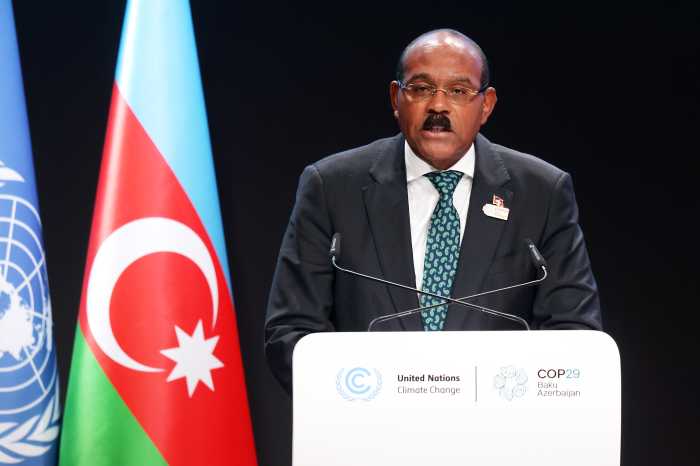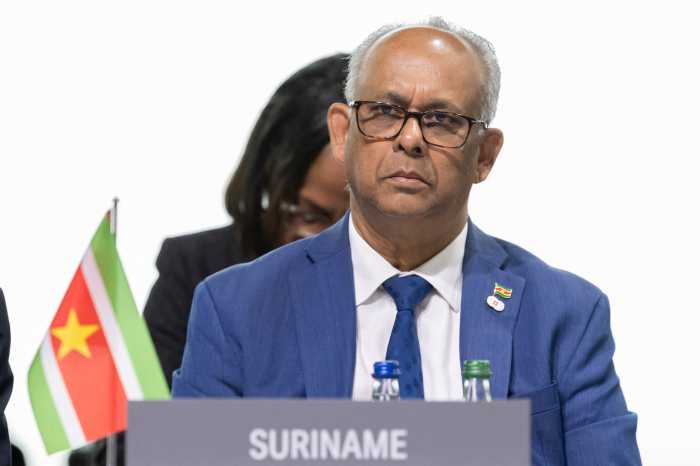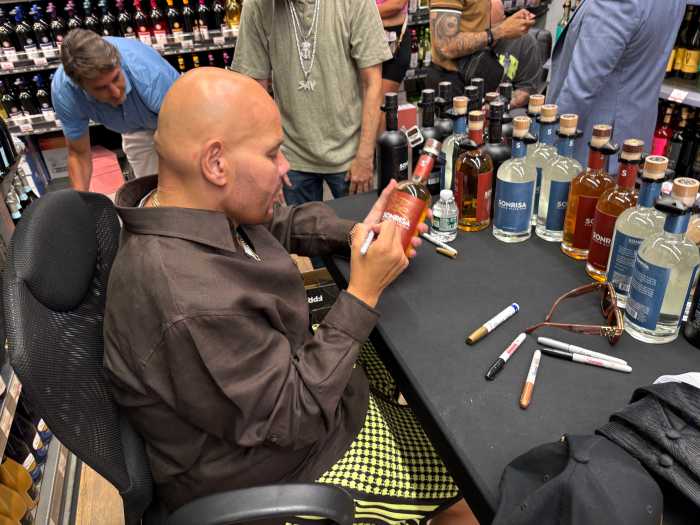Antigua
A 27-year-old Jamaican chef who admitted to importing about three pounds of marijuana into Antigua has been jailed for a total of two years after he failed to pay fines totaling EC$47,000.
Glenroy Anthony Fletcher was convicted for importing the illegal narcotic and was fined EC$25,000 and he also had to pay a fine of EC$11,000 or six months imprisonment after he pleaded guilty.
On the charge of being involved in supplying of cannabis, he was fined $11,000 or eight months in prison.
The sentences are to run concurrently.
The court heard that Fletcher, who is a professional chef, imported a box with the drug but used the name and address of another man.
Last month members of the Police K-9 Unit were conducting a search at Deep Water Harbor when one of the dogs alerted the handler to the box.
When the box was opened, investigators found items for a baby and two brown teddy bears stuffed with the illegal drug.
The box was sealed and the man whose name was on the label was called upon to clear the items.
When the man turned up with Fletcher to clear the box he was held for questioning and later charged with the offences.
Dominica
The Child Abuse Prevention Unit in Dominica has revealed that more than 1,000 cases of child abuse, including 900 sexually related matters, had been reported there over a six-year period.
Unit coordinator Jemma Azille-Lewis said more than 1,200 children were abused between 2010 and 2016 while addressing the opening of a recent one-day workshop on child protection and domestic violence.
The workshop was held in collaboration with the Bureau of Gender Affairs and Caribbean Male Action Network.
“When you have discussions like these, why not make it a discussion on protecting our children,” she said.
Guyana
The British government has promised to assist Guyana with a multi-million Security Sector Reform Action Plan to deal with the South American country prison problem.
British High Commissioner to Guyana Gregg Quinn told a press conference recently that Russell Combe, who is on leave, has already submitted an interim report to the government.
He said Combe, who is the advisor on the Security Reform Project is expected to start work on the prison service project when he returns.
The British High Commissioner also said that a special note is being made of how they can assist the Prison Service after the recent events at the Camp Street and Lusignan Prisons.
Referring to some of the issues that affect the country’s penal / correctional system, Quinn said the fundamental problem is that prisoners are on remand for longer periods than the sentence they could receive for the crime.
The high commissioner believes that the judiciary has a significant role to play in ensuring that prisoners are not in jail longer than what the crime actually permits.
Jamaica
The Jamaican government is moving to expand the utilization of land within the correctional system to further boost agricultural production.
The move is to further reduce Jamaica’s food import bill by greater utilization of state-owned resources.
It is a collaborative effort between the Ministry of National Security and the Ministry of Agriculture and Fisheries.
The Department of Correctional Services, which falls under the Ministry of National Security and the Rural Agricultural Ministry, will be the key entities spearheading the implementation of activities incorporated in a work plan for prisoners being developed by a special committee comprising representatives of both ministries.
It is also anticipated that inmates serving custodial sentences, who will eventually become eligible for parole, will benefit from skills training and certification.
The project is expected to start at the Richmond Farm Adult Correctional Center in the eastern parish of St. Mary, which has approximately 350 acres, of which just under l0 acres are under cultivation.
Among the crops are banana, corn, plantain and sorrel. In addition, the facility is also engaged in livestock rearing involving pigs and chickens.
St. Lucia
The St. Lucia government has agreed to house prisoners from the Turks and Caicos Islands, which ware among the British Overseas Territories devastated by Hurricane Irma recently.
Prime Minister Allen Chastanet has assured that local security officials as well as the British government would ensure that prisoners would be safely transferred and would not pose a risk to the island’s population.
The British Virgin Islands and the Turks and Caicos Islands are facing problems with securing prisoners following the destruction of some prisons by Hurricane Irma and it is believed that more than 100 criminals are on the loose in those countries.
The prime minister said he has consulted with the commissioner of police and the minister for security, as well as the staff of the Borelais Correction Facility which have the capacity to house 50 prisoners.
Chastanet said that in making the decision to accept just three prisoners, he considered what would have happened if St. Lucia was in a similar problem, adding that in times of disaster, the island had received immense relief and support from the British and French.
St. Kitts
The St. Kitts and Nevis government has launched an investigation into the use of health facilities for testing of a vaccine to cure herpes saying it was unaware of the situation.
The government in a statement said it has been brought to the attention of the Ministry of Health that certain clinical trials were being conducted in the twin-island Federation, with the support of Southern Illinois University in the United States of America.
“The Ministry of Health states categorically that neither the Cabinet, the Ministry of Health, the office of the Chief Medical Officer nor the St. Kitts and Nevis Medical Board has ever been approached on this project,” the statement said.
In the statement, the Ministry of Health said that in order to help fulfil this mandate, the chief medical officer convened an Interim Ethics Review Committee to vet all medical research protocols in the Federation in keeping with international best practices.
Trinidad
The Trinidad and Tobago government has agreed on a moratorium to stop retrenchment in the public sector until the end of December.
This was agreed to by Prime Minister Dr. Keith Rowley during a meeting with the Joint Trade Union Movement (JTUM), led by the powerful Oilfield Workers’ Trade Union (OWTU) president general Ancel Roget.
Following the meeting Roget told the media the unions had initially left the National Tripartite Advisory Council (NTAC) because they were not satisfied with the way “mass retrenchments” were taking place in the private and public sectors over the past two years.
He said the most pressing issue that was discussed was that “we should have a moratorium on retrenchment if we should return to NTAC.
The prime minister agreed that his Government will place a moratorium on all retrenchment until Dec. 31, 2017.
Roget said the moratorium applies to “everything under the government’s control,” as he did not want anyone to have a Christmas knowing that their jobs were hanging over their heads.
-Compiled by Azad Ali


























